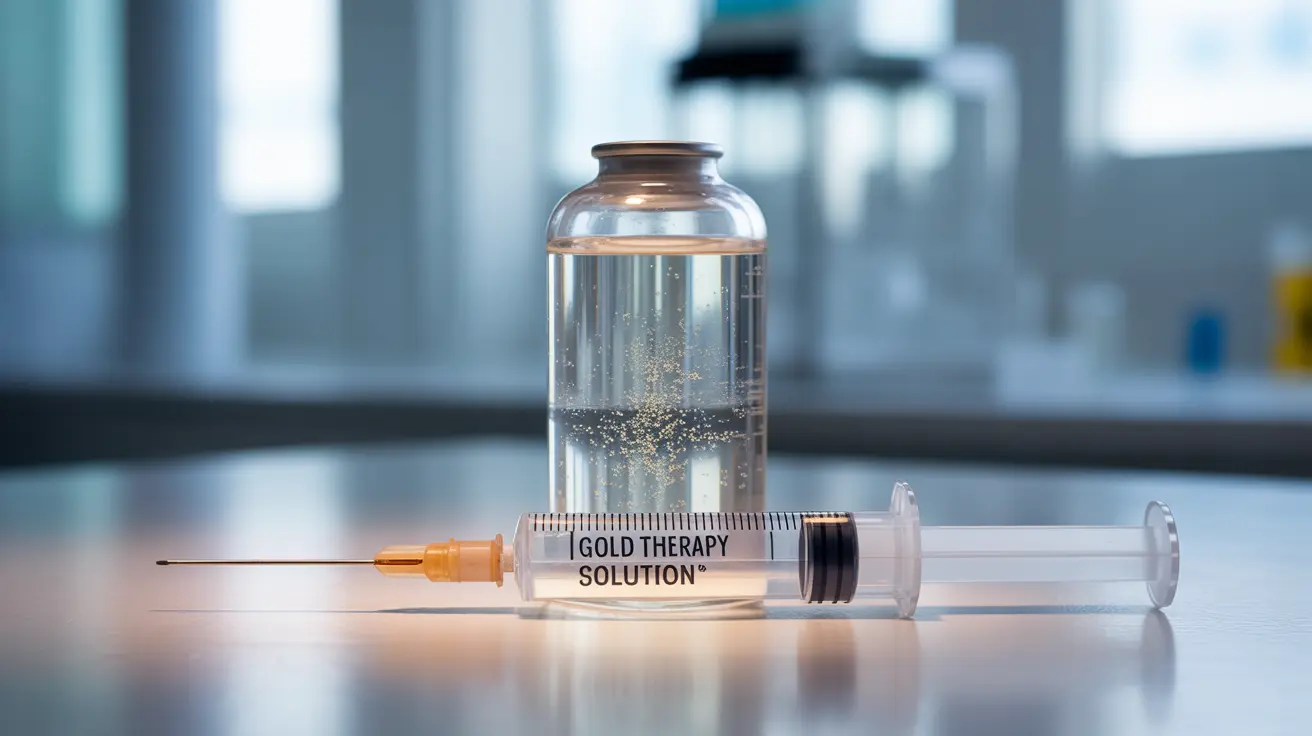Gold therapy, also known as gold shots or chrysotherapy, represents a historical advancement in rheumatoid arthritis treatment that continues to intrigue medical professionals and patients alike. While less commonly prescribed today, understanding this treatment option remains important for those exploring different approaches to managing rheumatoid arthritis.
This comprehensive guide explores how gold shots work, their effectiveness, potential risks, and their place in modern rheumatoid arthritis treatment plans. We'll also examine why this once-popular treatment has largely been replaced by newer alternatives.
How Gold Shots Work in Treating Rheumatoid Arthritis
Gold shots contain microscopic gold particles suspended in a special solution that's injected into the muscle. These injections work by modifying the body's immune response, helping to reduce inflammation and slow the progression of joint damage in rheumatoid arthritis patients.
The active compounds in gold shots primarily target the immune cells responsible for causing joint inflammation. By dampening this inflammatory response, gold therapy can help alleviate pain and protect joints from further damage.
Administration and Treatment Schedule
Gold shot treatment typically follows a carefully structured schedule. Initially, patients receive weekly injections for the first several months. Once the desired response is achieved, the frequency may be reduced to monthly maintenance doses.
Healthcare providers closely monitor patients throughout the treatment course through regular blood tests and physical examinations to ensure safety and effectiveness.
Side Effects and Safety Considerations
While gold shots can be effective for some patients, they require careful monitoring due to potential side effects. Common reactions include:
- Skin rashes or itching
- Mouth sores
- Kidney problems
- Changes in blood cell counts
- Metallic taste in the mouth
These side effects, combined with the need for frequent monitoring, have contributed to the decreased use of gold therapy in modern treatment plans.
Modern Alternatives to Gold Therapy
Today's rheumatoid arthritis treatment landscape offers several more commonly prescribed options:
- Disease-modifying antirheumatic drugs (DMARDs)
- Biological response modifiers
- JAK inhibitors
- Conventional pain management medications
These newer treatments often provide more predictable results with fewer monitoring requirements, making them more convenient for many patients.
Comparing Injectable vs. Oral Gold Treatments
While injectable gold has historically been the more common form, oral gold preparations (auranofin) are also available. Injectable gold typically shows higher effectiveness but requires professional administration. Oral preparations offer more convenience but may have different absorption rates and effectiveness profiles.
Frequently Asked Questions
What are gold shots for rheumatoid arthritis, and how do they work to relieve symptoms?
Gold shots contain gold compounds that modify the immune system's response, reducing inflammation in joints affected by rheumatoid arthritis. They work by suppressing the inflammatory processes that cause joint damage and pain.
What are the most common side effects and risks of gold shots for rheumatoid arthritis treatment?
Common side effects include skin reactions, mouth sores, kidney problems, and blood count abnormalities. Regular monitoring is required to manage these potential risks effectively.
How long does it take for gold shots to start working, and how often do I need the injections?
Patients typically begin seeing improvements after 3-6 months of weekly injections. Once improvement is established, treatments may be spaced out to monthly intervals for maintenance.
Why aren't gold shots used as often anymore, and what are the main alternatives for managing rheumatoid arthritis today?
Gold shots have fallen out of favor due to the emergence of newer, more targeted treatments with fewer monitoring requirements. Modern alternatives include DMARDs, biologics, and JAK inhibitors.
Is oral gold treatment as effective as gold shots, and what are the differences between the two options?
Injectable gold typically shows greater effectiveness than oral preparations, though oral gold offers more convenience. Oral gold may have different absorption patterns and might be preferred in certain cases where injections aren't suitable.




